
Color, 1970, 99 mins. 40 secs.
Directed by Melvin Van Peebles
Starring Godfrey Cambridge, Estelle Parsons, Howard Caine, D'Urville Martin, Mantan Moreland, Kay Kimberly, Erin Moran
Indicator (Blu-ray) (UK R0 HD), Sony (DVD) (US R1 NTSC) / WS (1.85:1) (16:9)
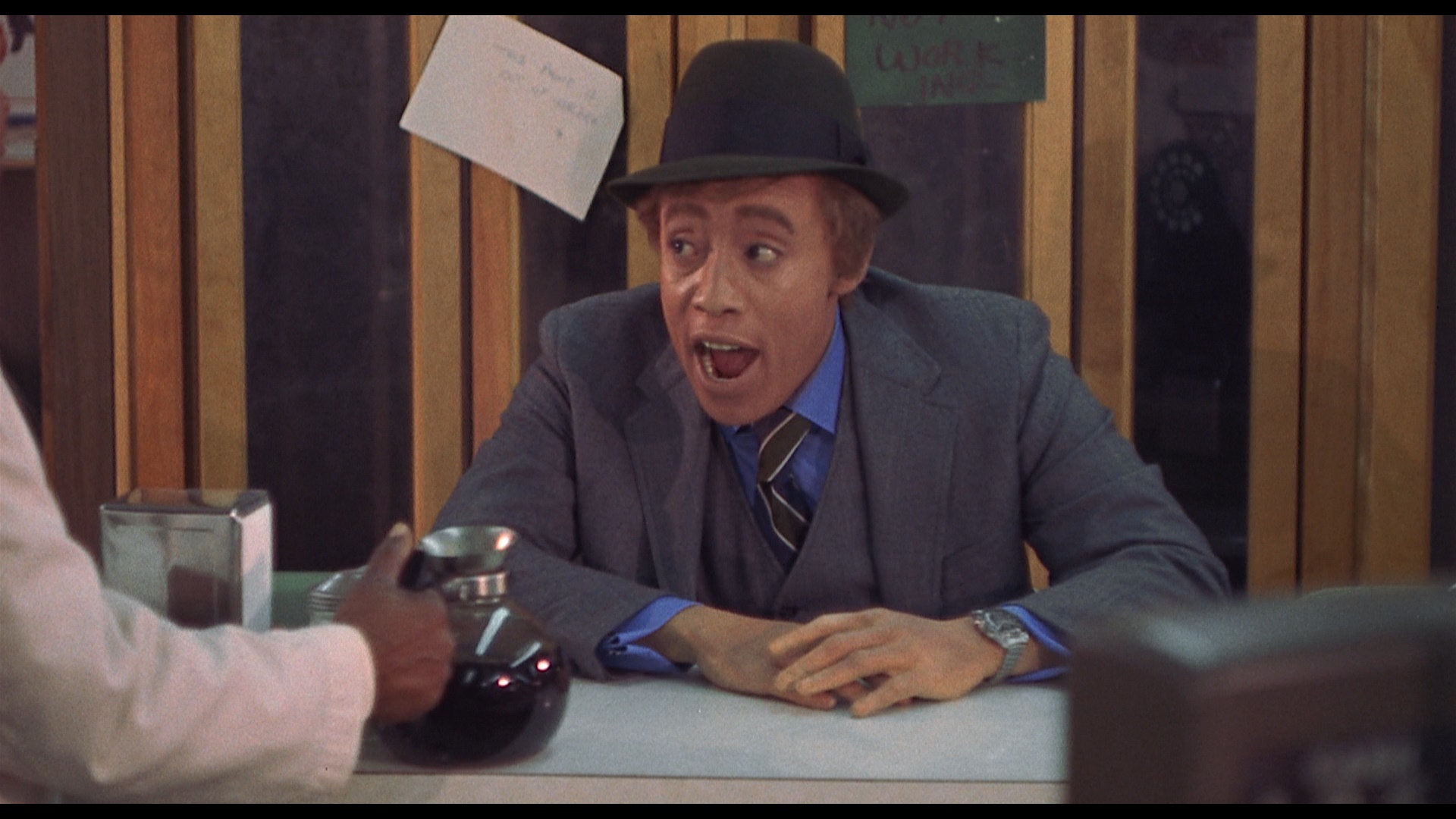 before revolutionized modern black cinema with
before revolutionized modern black cinema with 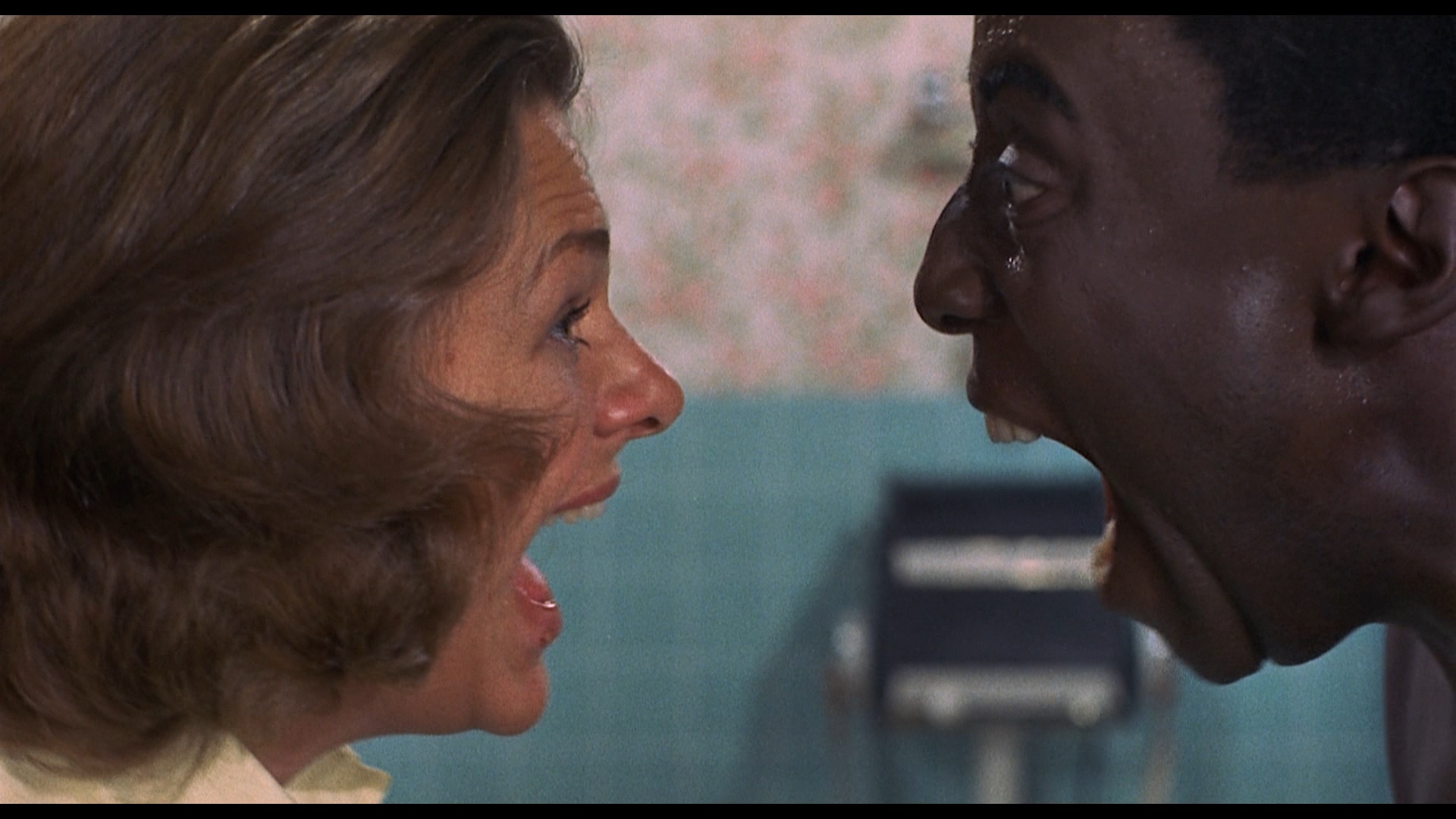 Sweet Sweetback's Baadasssss Song in 1971, actor-writer-director Melvin Van Peebles tackled his first and only major studio feature with Watermelon Man, a raucous satire of racial stereotypes in Nixon-era America. In a cunning move that may be lost on young first-time viewers today, Van Peebles adopts the visual vernacular of TV sitcoms and brightly lit studio comedies to showcase his tale, which starts off like a goofy domestic farce that could be happening down the street from something like Under the Yum Yum Tree. Of course, his far more explosive game plan soon snaps into focus and provides a wild showcase for its leading man, Godfrey Cambridge, who was having one hell of a year between this and Ossie Davis' Cotton Comes to Harlem. Already familiar as a comic actor with scene-stealing roles in The President's Analyst and The Busy Body, Cambridge really came into his own as a leading man but would tragically die far too young in 1976, just after providing two generations of kids with endless nightmare fuel via the world's most harrowing anti-drug film, "Dead Is Dead."
Sweet Sweetback's Baadasssss Song in 1971, actor-writer-director Melvin Van Peebles tackled his first and only major studio feature with Watermelon Man, a raucous satire of racial stereotypes in Nixon-era America. In a cunning move that may be lost on young first-time viewers today, Van Peebles adopts the visual vernacular of TV sitcoms and brightly lit studio comedies to showcase his tale, which starts off like a goofy domestic farce that could be happening down the street from something like Under the Yum Yum Tree. Of course, his far more explosive game plan soon snaps into focus and provides a wild showcase for its leading man, Godfrey Cambridge, who was having one hell of a year between this and Ossie Davis' Cotton Comes to Harlem. Already familiar as a comic actor with scene-stealing roles in The President's Analyst and The Busy Body, Cambridge really came into his own as a leading man but would tragically die far too young in 1976, just after providing two generations of kids with endless nightmare fuel via the world's most harrowing anti-drug film, "Dead Is Dead." 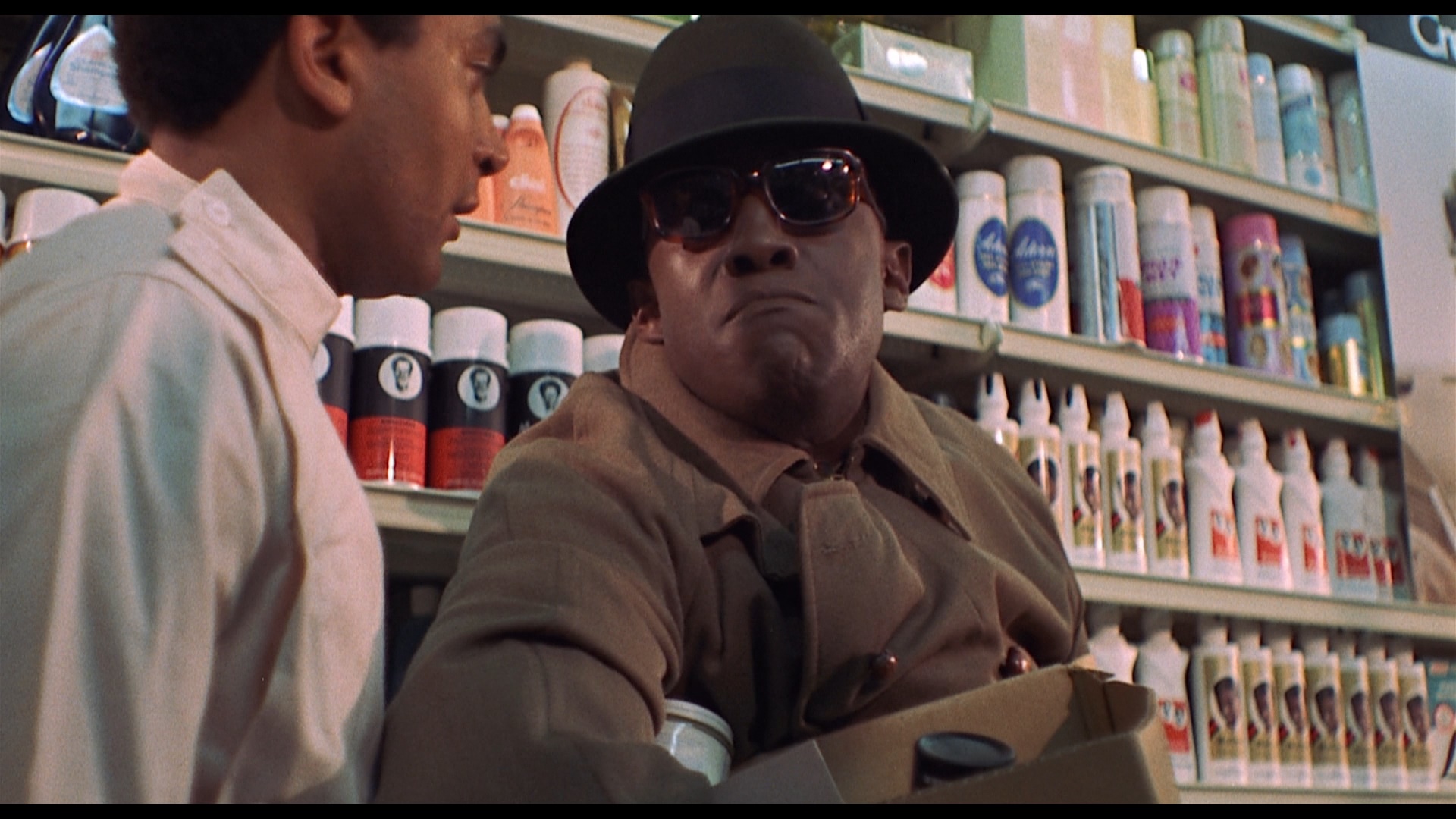 he's mortified to wake up before dawn to discover that he's suddenly turned black. The transformation causes massive upheaval in every aspect of
he's mortified to wake up before dawn to discover that he's suddenly turned black. The transformation causes massive upheaval in every aspect of 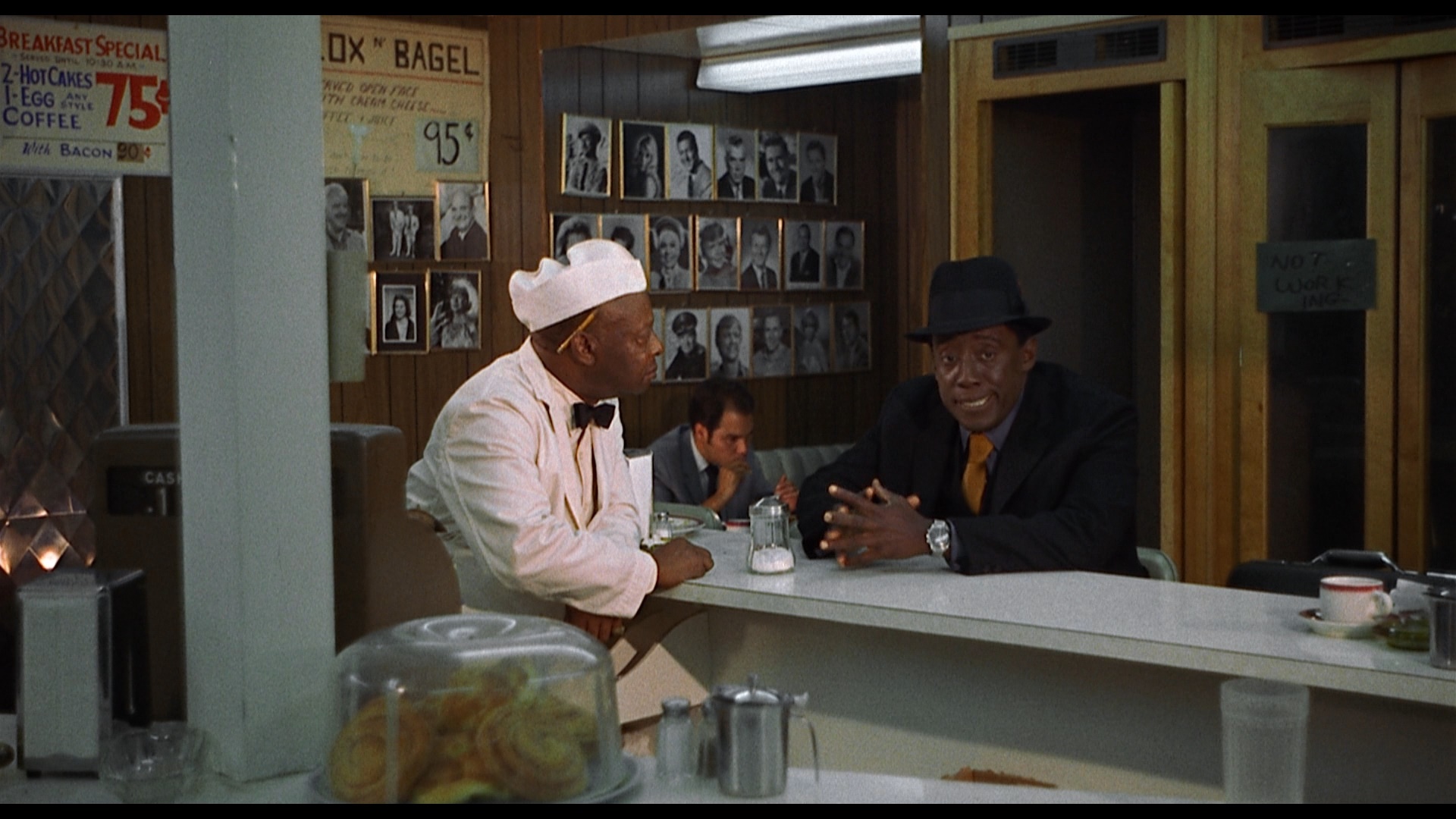 his life from his relationship with his family to his job to even his property ownership, which ultimately causes a massive shift in his perception of himself and the world around him.
his life from his relationship with his family to his job to even his property ownership, which ultimately causes a massive shift in his perception of himself and the world around him. 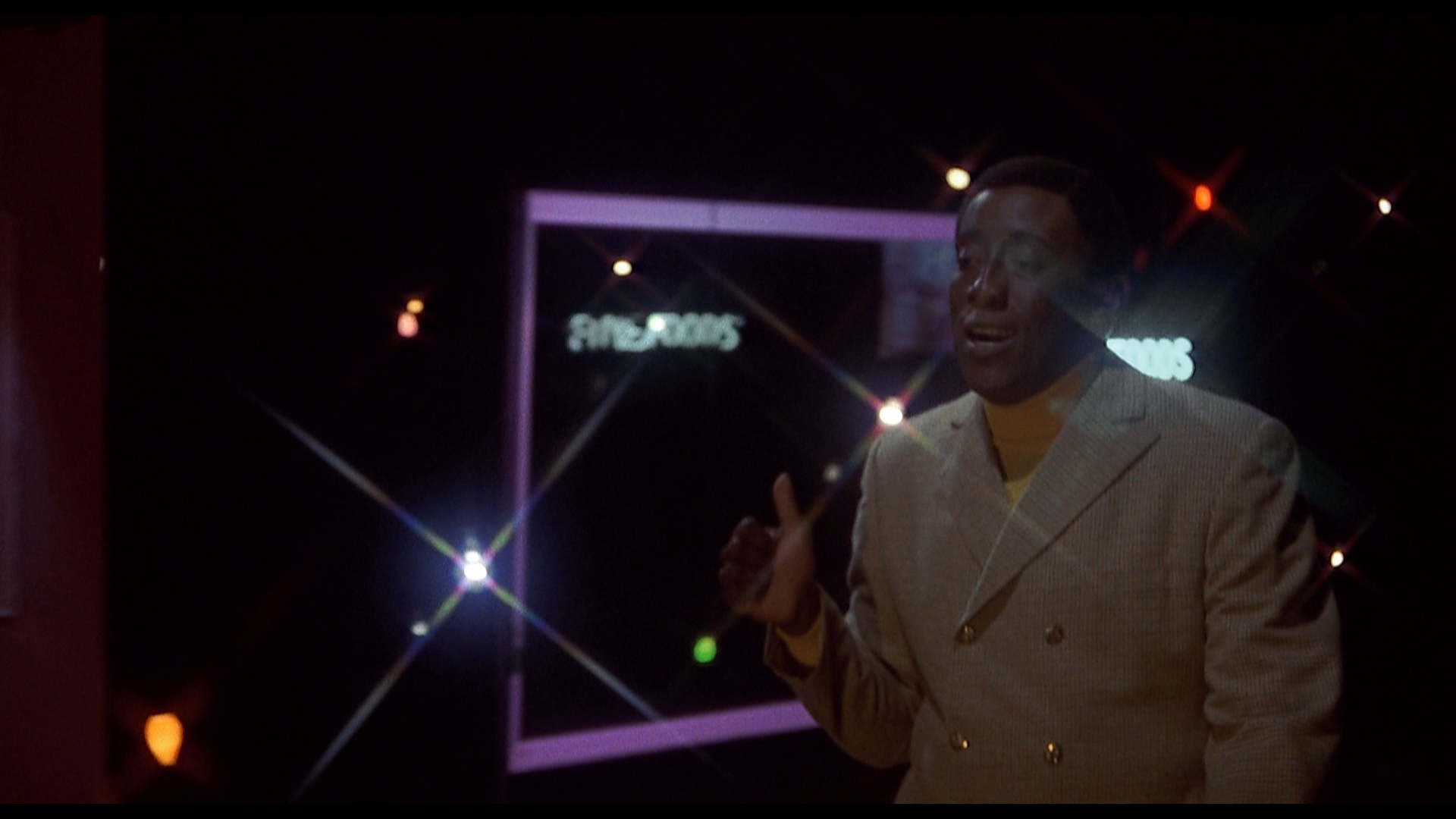 ray bow from Indicator in the U.K., which utilizes a typically strong Sony-provided HD transfer. Bear in mind that this is has all the hallmarks of
ray bow from Indicator in the U.K., which utilizes a typically strong Sony-provided HD transfer. Bear in mind that this is has all the hallmarks of 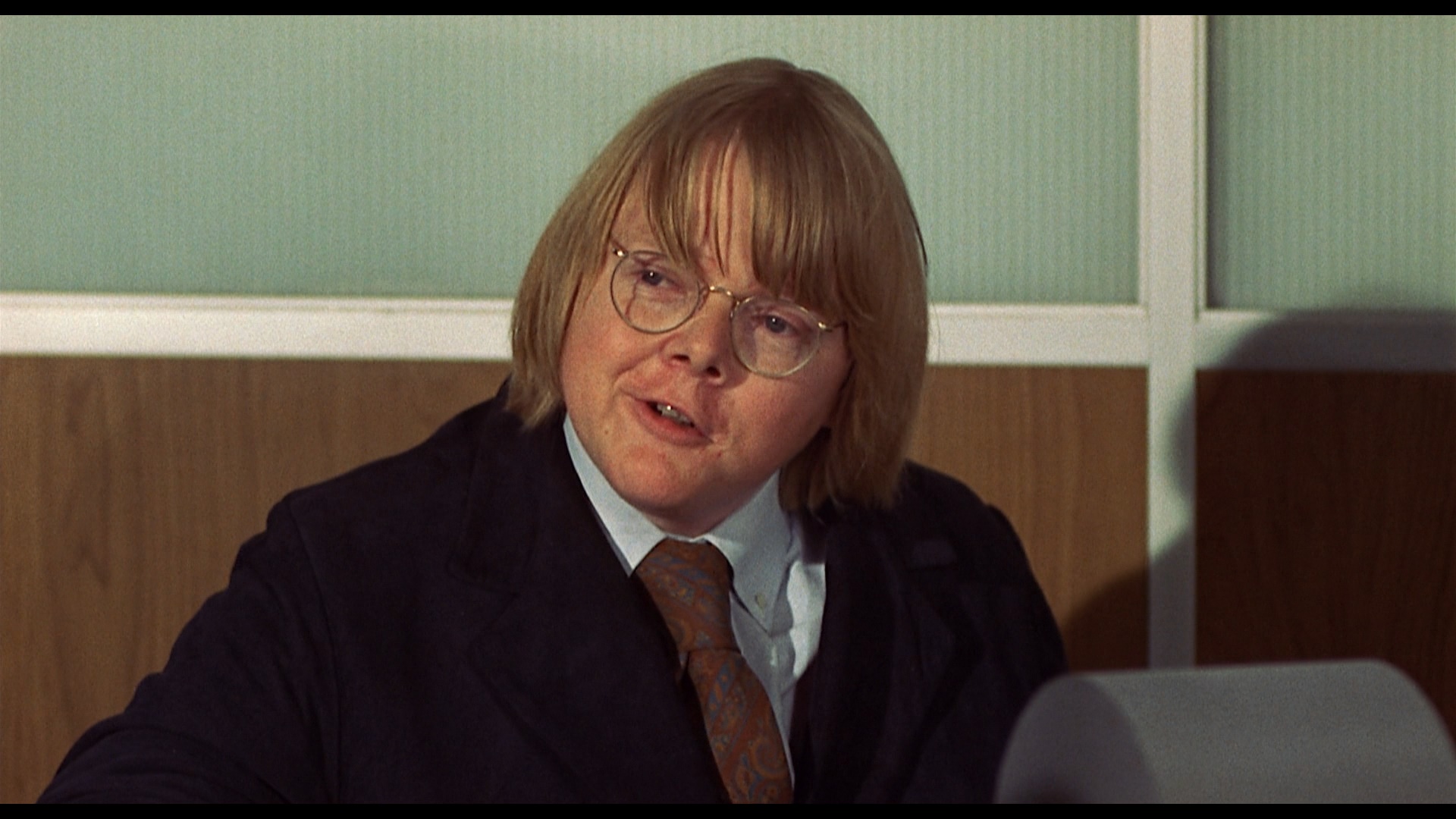 the studio's early '70s film stock with a slightly orange look at times and a garish color palette, all intentional and pretty nostalgic if you grew up watching a lot of Columbia titles on TV. The English LPCM mono track (with optional English SDH subtitles) sounds pristine, even if won't exactly tax your sound system. A video intro by Van Peebles (5m6s) is ported over from the DVD and features him chatting about the film, with the most interesting bit being about the original scripted ending (it was all a dream) that he jettisoned in favor of the far more memorable resolution we now have. The film can also be played with another audio option, "The Guardian Interview with Melvin Van Peebles," which was recorded in 1996 with the filmmaker in conversation with broadcaster Darcus Howe at London’s National Film Theatre. Running 71 minutes, it's a very upbeat and enjoyable listen as he spins out plenty of stories about the creation of Sweetback, the perils of dealing with studio executives at the time, and a very funny account of "how I got Watermelon Man done." An image gallery is also included featuring 65 stills and promotional items, while the essential liner notes booklet features an excellent essay by Sergio Mims (whom you hopefully know from his exceptional commentary work) about Van Peebles' irrepressible anarchist attitude and the importance of this film as a precursor for the cinematic revolution he would usher in soon after.
the studio's early '70s film stock with a slightly orange look at times and a garish color palette, all intentional and pretty nostalgic if you grew up watching a lot of Columbia titles on TV. The English LPCM mono track (with optional English SDH subtitles) sounds pristine, even if won't exactly tax your sound system. A video intro by Van Peebles (5m6s) is ported over from the DVD and features him chatting about the film, with the most interesting bit being about the original scripted ending (it was all a dream) that he jettisoned in favor of the far more memorable resolution we now have. The film can also be played with another audio option, "The Guardian Interview with Melvin Van Peebles," which was recorded in 1996 with the filmmaker in conversation with broadcaster Darcus Howe at London’s National Film Theatre. Running 71 minutes, it's a very upbeat and enjoyable listen as he spins out plenty of stories about the creation of Sweetback, the perils of dealing with studio executives at the time, and a very funny account of "how I got Watermelon Man done." An image gallery is also included featuring 65 stills and promotional items, while the essential liner notes booklet features an excellent essay by Sergio Mims (whom you hopefully know from his exceptional commentary work) about Van Peebles' irrepressible anarchist attitude and the importance of this film as a precursor for the cinematic revolution he would usher in soon after.